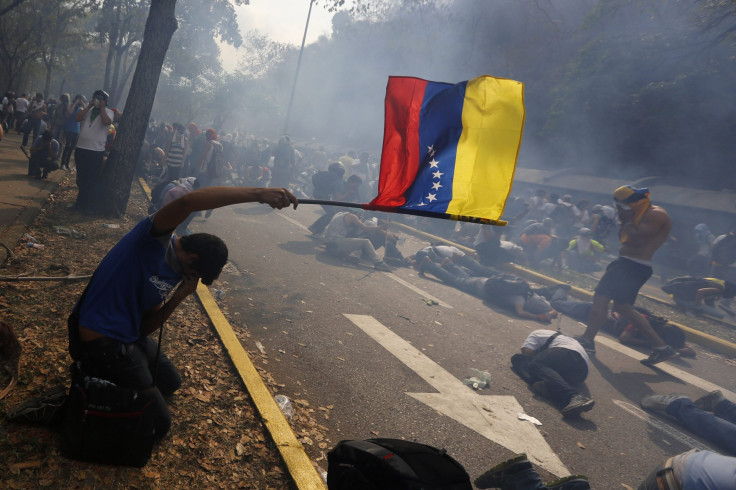Venezuela’s Latest Economic Woes: The Bolívar Plummets, Credit Rating Downgraded And More

There is no rest for Venezuela. After two months of nearly non-stop protests, accusations between government and opposition and no solution in sight, the country’s economy has started to show severe signs of deterioration.
First, the local currency, the bolivar, has depreciated greatly: Its exchange rate against the American dollar decreased nearly 90 percent, according to official calculations. When calculated with the Sicad I rate, an alternative value fixed by a government-controlled auction, the drop was barely 77 percent.
The bolivar already sported the dubious honor of being Latin America’s most devalued currency in 2013, and it is not faring well this year either. In a desperate attempt to control it, the government introduced a new free-floating exchange rate, the Sicad II, which offers dollars for eight times the official price.
The current official exchange rate is 51.8 bolivars per $1, but that rate doubles in the black market.
The measure aims at making the system more flexible, and controlling inflation, which in 2013 reached a 57 percent annual rate. This year is following suit, with a 57.30 percent inflation rate in February.
Even if Sicad II works, it will just be a temporary fix for a fundamental problem: It lacks foreign currency reserve, a significant problem for Venezuela, a country that is dependent on imports. The government has also announced that the public offer of dollars will only be 8 percent of the foreign currency annual budget, though the demand was much higher than that in the last two years.
Foreign currency woes certainly aren't the only financial problems facing Venezuela. Oil production, a key part of the country’s economy and its main export, has declined abruptly. Despite promises by Venezuela’s oil minister, Rafael Ramírez, to reach a goal of 6 million barrels per day by 2019, the truth is that production in 2012 reached only 2.9 million, down from 3.2 million in 2005. Most of that production is saved for international allies like Cuba and Nicaragua, rendering it unable to play up the country’s competitiveness.
Public budget deficit reached 18 percent of the GDP in 2013.
All of these factors have contributed to a severe drop in the country’s attractiveness to foreign investment. Fitch Ratings cut the country’s credit grade by a third to B, five steps below investment grade, putting Venezuela at the level where Lebanon, Ecuador and Rwanda are.
Analysts predict Venezuela will drop its economic significance in Latin America this year, which will enable Chile to grab the fifth-largest economy title.
© Copyright IBTimes 2024. All rights reserved.











